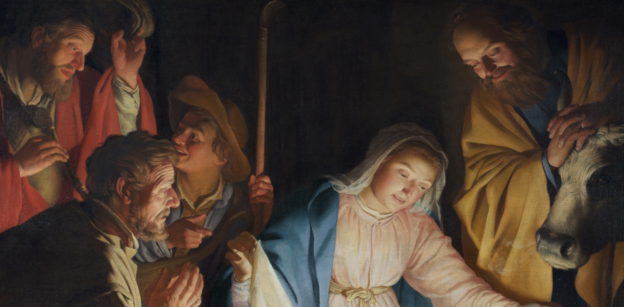This morning as I delivered the children onto the school grounds, the Principal was standing at the main gate greeting those who walked in. Despite this being a school of hundreds of children, the Principal seemed to know the names of my children. Since to my knowledge they are not regular visitors for behavioural modification, this suggests that she has learnt the names of many of the children under her care. And thus, cares for them as individuals.
Where else might we expect that to be true but the Church? And not just with children, but with everyone too. Paul’s philosophy of ministry sought to care for each and every individual who was part of the churches he planted and shepherded too. That care reflects the care which Jesus, the Good Shepherd, has for us all. That care reflects the same care that each of us should have for each other.
Paul’s letter to the Thessalonian Church speaks lovingly of them, and of how their reputation for imitating the same love and care which Paul showed them in his time with them had spread throughout the congregations of their region.
Even though events meant that Paul had to leave them, it did not mean that his care for them ceased. Paul had been torn away from them “in person not in heart” (v.17). Perhaps his sudden departure had left his spiritual children wondering if he truly loved them, or was orphaning them. That was certainly not the case.
Paul tried multiple times to return to Thessalonica to see them again, “but Satan hindered us” (vv.17-18). The way in which Satan did so is unknown, but showed that Satan sought to frustrate Paul’s ministry to the Church. We should be alert to the ways in which Satan may seek to frustrate our love for each other in the Church today, and pray earnestly for victory!
Because victory is indeed the goal of the love which Paul expressed for the Thessalonians. They were the fruits of his service of God. “For what is our hope or joy or crown of boasting before our Lord Jesus at his coming? Is it not you? For you are our glory and joy” (vv.19-20).
Like the expensive crown which towns in Rome would provide the emperor on his visit to their humble abode, the Thessalonians were the fruit of his own salvation born out at Jesus’ victorious return to bring to full realisation his eternal kingdom.
To demonstrate his love for them, even in his absence, Paul acted. When he could bear it no longer, he dispatched “Timothy, our brother and God’s coworker in the gospel of Christ, to establish and exhort you in your faith” (3:1-2). Paul was willing to labour alone in Athens, if it meant he could show love for them by equipping them further.
Paul did so knowing that the Church in Thessalonica was undergoing adversity. He knew they were suffering afflictions, as he had before being forced to leave, and just as Paul had warned them would happen (vv.3-4).
Paul’s ministry did not preach a Christianity where trusting in Jesus solves all your problems, but where trusting in Jesus solves your biggest problem – your sin and rebellion against God. Since that puts you at odds with the world, he warned them that afflictions would come as well.
In God’s providence, those afflictions would help purify and sanctify those believers (cf Rom. 8:28). But that does not make it fun in the meantime!
Those afflictions played on Paul’s mind, along with his love for the Thessalonians. It was one of the things which pushed him to send Timothy to “learn about your faith, for fear that somehow the tempter had tempted you and our labor would be in vain” (v.5).
Paul’s love for the Thessalonians went far beyond words, it went to prayer and actions on their behalf. Paul loved the Thessalonians, just as he encouraged them to love each other, knowing that the world would not love them for their faith in Christ. So their love for each other would need to be deep and genuine to encourage each other to persevere.
Paul’s heart was that of the Good Shepherd, Jesus, for his sheep. Just as a good shepherd will leave 99 sheep to find the lost one, so too Jesus sought out us, lost sheep, to bring us into his fold.
That love is the same love that we should show each other. It is the love that elders and deacons in the Church should show for all in the congregation, as under-shepherds of the Good Shepherd. It is the love that all of us should have for the children of our congregation. It is the love that each of us should have for one another.
We go through various difficulties and trials to sanctify us and fit us for heaven. Our love for each other helps us endure the difficulties and trials, and even afflictions and persecutions if they should come, that we too will stand victorious at our Lord Jesus’ coming.



